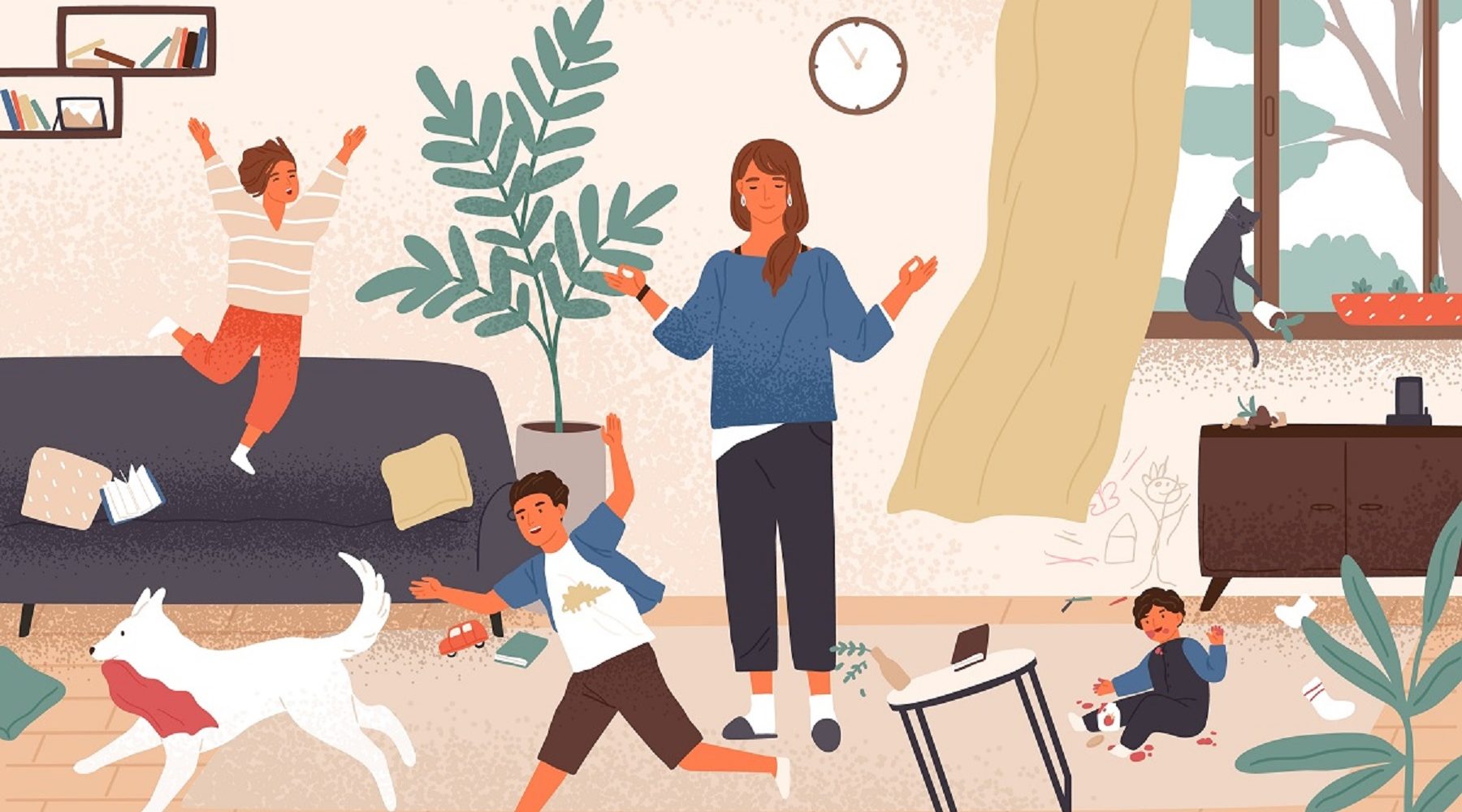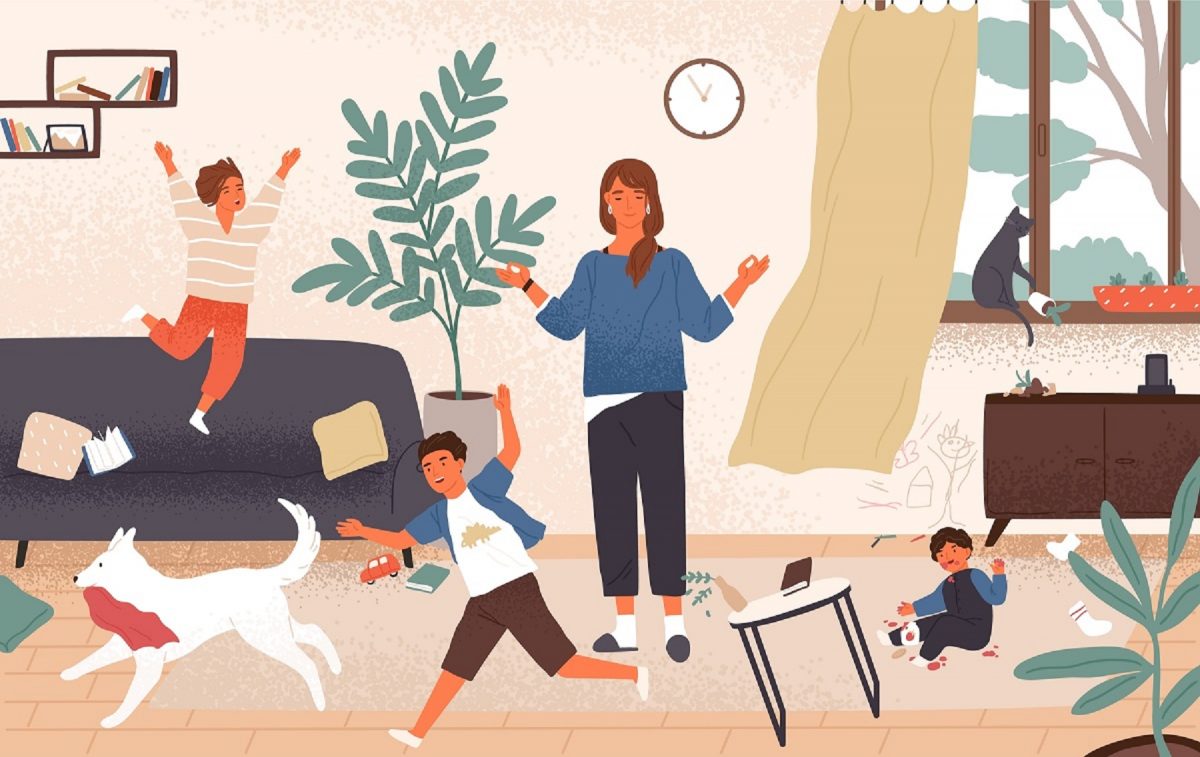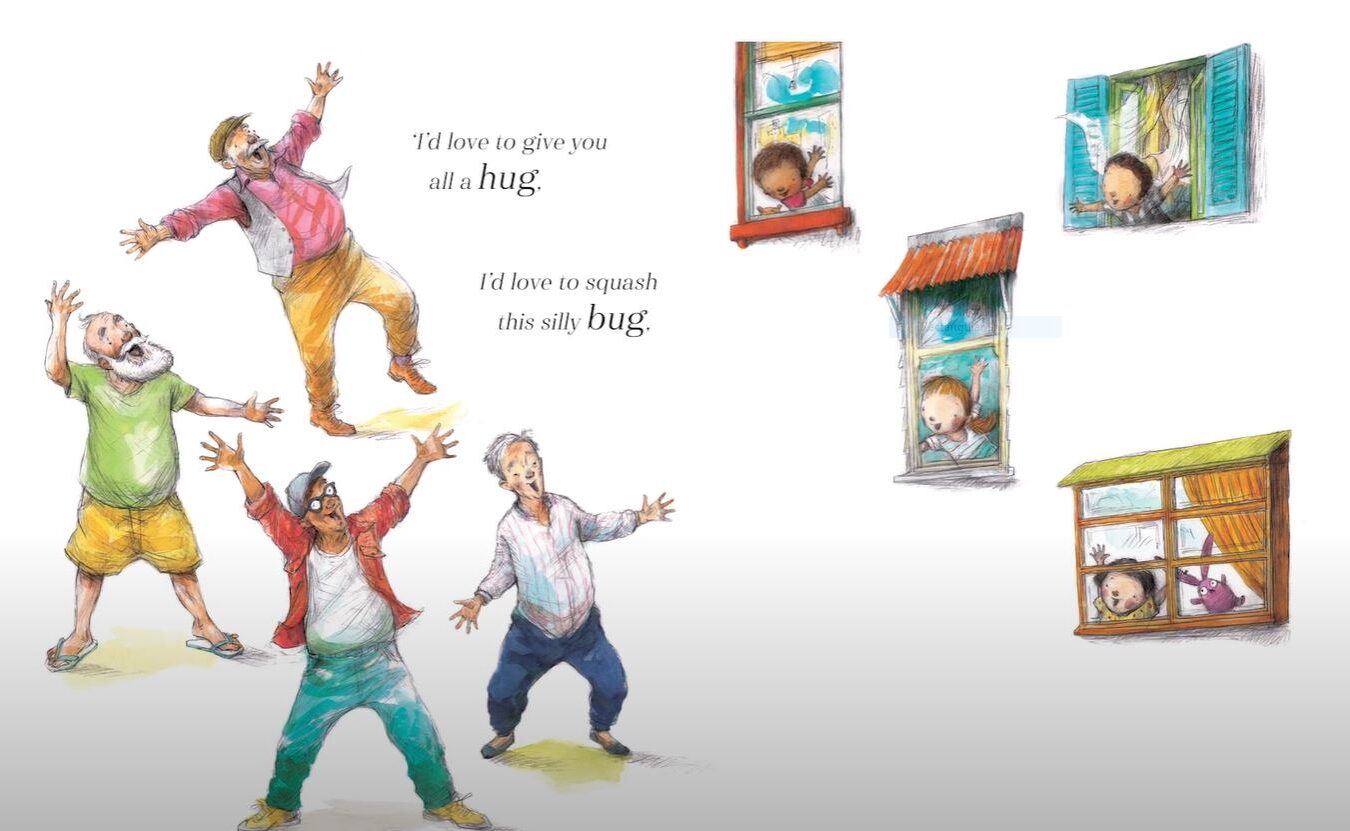
Parents and kids are facing some struggles in our stay-at-home lives. Peter Hanlon asked the experts for some practical tips and advice to help, part of our Best of The Parents Website series.
Coronavirus has enlisted us all in a giant social experiment, where the work, family and social lives we’ve known have been tipped on their heads. Add the responsibility of learning at home to the mix, and the uncertainty and anxiety can feel overwhelming.
Dannielle Miller, an expert in fostering resilience in teenagers and founder of Enlighten Education, says children are virtual ‘canaries in the cage’ of the pandemic, feeding off the mood in households that are experiencing stress around changes to work, income and social interaction. Tension will inevitably invade these new ‘classrooms’. Acceptance and understanding are vital.
‘There’s so much about this time that is making our kids very reactive,’ Dannielle says. ‘For young people the peer group is everything. That social connection that is such a big part of school, and of their happiness and wellbeing, we’ve completely stripped that away from them.’
Professor Lea Waters, author of the parenting book The Strength Switch, is living this first hand. Her University of Melbourne resident psychologist duties are being carried out from home, where she can hear her husband working in the next room, while her teenaged son and daughter are schooled under the same roof.
She hears parents airing their concerns – around getting their own work done, while managing the stress of households in upheaval, and teaching and policing their children without letting them fall behind in their learning.
In both practice and attitude, there are ways to ease the journey.
Tip 1: Routines and new rituals - including 'bonkers' time
‘As much as you can, set up a routine and stick to it,’ Lea says, adding that spicing this consistency with new rituals will feed the brain’s need to blend predictability with novelty. ‘The routine part gives us predictability and helps with our anxiety … but if it’s too routine we can become bored and tune out. So, create new rituals to give the brain some novelty.”
In her house this has included dining together every night, not just when previously busy schedules permitted, and family walks with the dog. For younger children, Lea advocates ‘bonkers time’ – a designated block each day for dancing, jumping about and generally going a bit crazy to release energy
Tip 2: Create zones at home
Our homes have been invaded by work and school. Because our brains attach certain rooms to specific functions, it’s important to be clear about what happens where in our temporary world.
‘Be really intentional about the geography in your house – where the kids do their school, where they relax,’ Lea says. ‘If they’re doing school all day in their bedroom, then at night they sleep there, it’s very difficult for the brain to unwind, because it starts to attach the bedroom to being a place of work.’
Labelling your zones – Mum’s ‘workstation’, ‘Mary’s school desk’ – is a useful trigger
Tip 3: Draw up a family contract - and maybe nominate a ‘humour ambulance’
Listing the strengths each family member brings to the table – who is a conscientious planner; who is more playful and flexible; who has strong IT skills, etc – can help build a powerful team dynamic. Lea suggests formalising this with a family contract that can be put on the fridge.
Her son has been nominated as the family’s ‘humour ambulance’, drawing on his capacity for making people laugh. Her daughter’s artistic flair has been utilised in creating signs for work stations and zones.
Tip 4: Cut each other some slack
Dannielle has never read a book on parenting during a pandemic, because none exists. She knows children won’t always see their parents in the best light through this time, and vice versa – and that’s okay.
‘It’s a good chance to humanise ourselves to our children, and it’s a really good opportunity – particularly for adolescents, to realise that closing themselves off in their rooms is really isolating, not just for themselves, but for other family members. It’s a chance for them to shift a little from that childish expectation that “my parents take care of everything”.’
Lea says we should give ourselves permission to be human, through having the conversation with our kids that it’s a tough time, we will lose patience, and that’s normal. ‘When that happens, take a deep breath, use the words ‘sorry’ and ‘that’s okay’.
‘It’s a chance to build resilience, and part of resilience is you fall down and you get back up again.’
This article was first published in April 2020.
Like this post? Please share using the buttons on this page.

More resources on The Parents Website
Learning from home and returning to the classroom
Andrew Fuller: a parent guide to learning from home
Five tips for parents to support learning at home
Going global: Top tips for learning at home
Learning at home: Our big list of great resources
How boredom can inspire creativity
At home with the little ones? Great ideas to keep the learning routine going – and have fun
Andrew Fuller: Seven things for a smooth transition back to school-based learning
Lessons from Lockdown: the good things we’ve discovered
For teachers
Andrew Fuller: remote learning tips and ideas for teachers
Resilience, commitment and hardwork: how teachers are meeting the challenge in these strange times
Parenting, family life and supporting children
Our super list of great ideas for kids at home – updated
Andrew Fuller: Talking to young people about the coronavirus
Entering the Anger Phase: Strategies for supporting young people during the coronavirus
Michael Grose: Forget the parenting rule book, and create your own
Best books for kids to help them understand the coronavirus
Online safety
Six tips for young people to look after their online safety, from the eSafety Commissioner
Online safety kit for parents and carers during the coronavirus: from the eSafety Commissioner
A checklist to look after your child’s digital health and safety
Subscribe to The Parents Website


